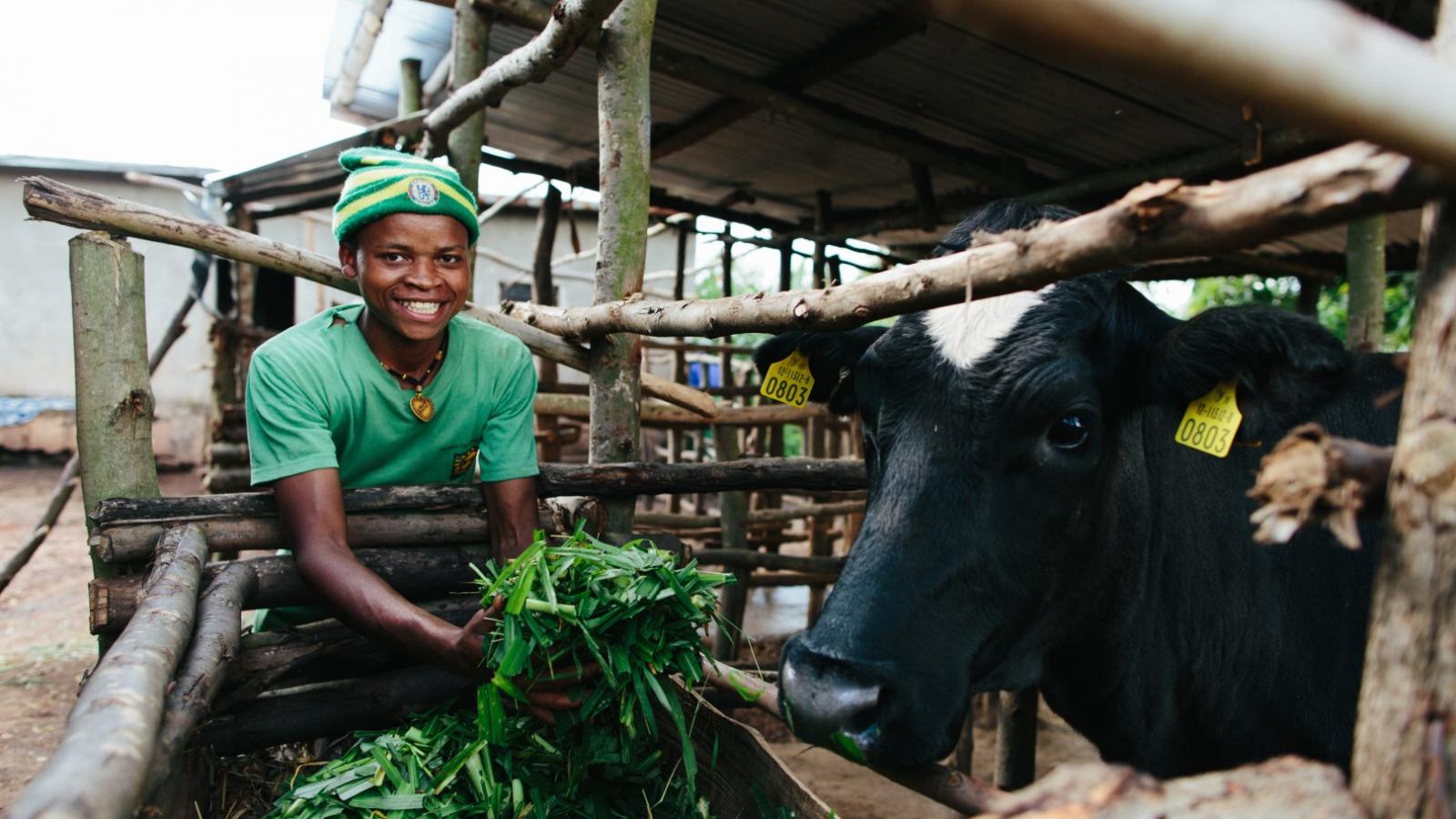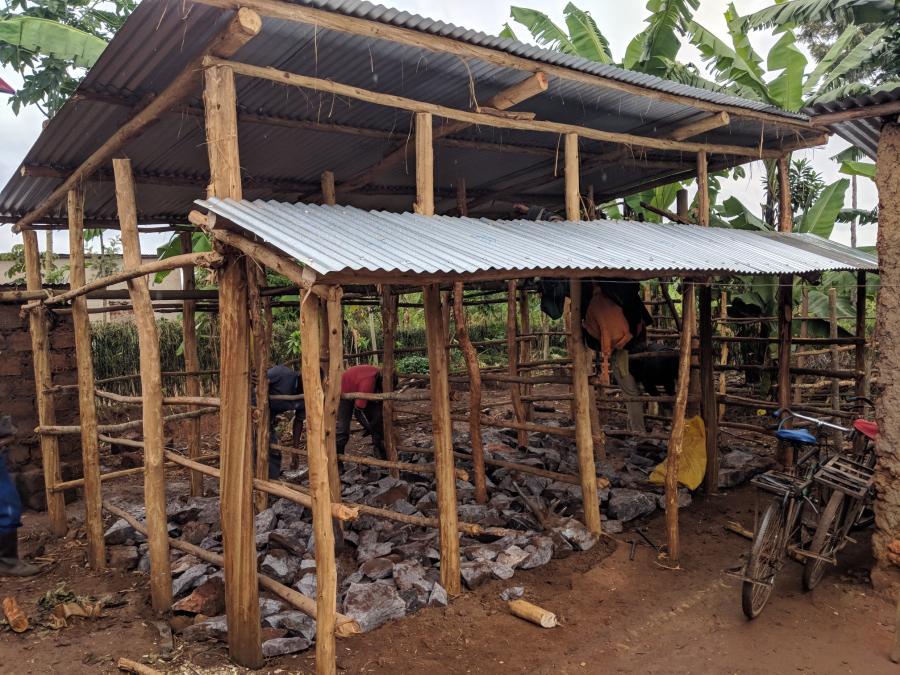Animal Housing and Feed

As Bóthar project recipients know, it is in the farmer’s best interests to provide the best possible care for his or her livestock.
The knowledge that improved care leads to improved productivity compels the beneficiaries to take great care for their animals for the simple reason that the health and wellbeing of the animal is directly linked to the owner’s own prosperity.
Seeing as the animals are the primary source of income for project families and the fact that the farming is done on an easily manageable scale means that in many cases, the animal lives for several years longer than they would in large scale farming enterprises here in Ireland.
To many families, the animal’s importance is such, that it is treated as part of the family.
Before a family ever receives their gift, they need to construct a safe shelter area known as a zero-grazing unit.

The zero-grazing unit, used mainly for housing cows and goats, serves a dual purpose of both protecting the animal from disease in the open and effectively utilising the available space. Most recipients do not have enough land to openly graze a cow, nor can they afford the loss of an animal to disease.
The zero-grazing unit is constructed of locally-available materials and has several separate areas, one each for milking, feeding and sleeping, one for offspring and also an enclosed exercise space. As goats and cows sent from Ireland have little immunity to local diseases, it is important that they are kept separate from local breeds to stave off infection and the serious problems that that can bring. These specially-constructed pens ensure a healthier living environment for the animals.
The most important by-product in utilizing a zero-grazing pen for livestock is the manure and urine collected. Project recipients are instructed in holistic agricultural techniques that utilize these resources as natural fertilizer and pesticide. A small-scale farm can sometimes triple its yield by simply using manure as fertilizer and urine as pesticide for crops.
All recipients are trained in fast-growing fodder planting, or an equivalent depending on the animal involved. Bóthar’s animals are never placed in areas where water availability does not meet the needs of the animal. In addition to this, water conservation and irrigation are widely practiced ensuring the availability of water in drier periods.